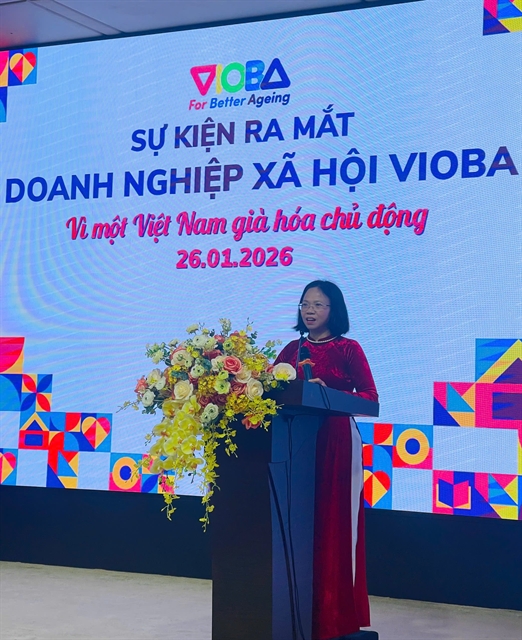 Society
Society

Law amending and supplementing several articles of the Law on State Audit for better effectiveness of public finance, public assets and anti-corruption supervision.
Law amending and supplementing several articles of the Law on State Audit for better effectiveness of public finance, public assets and anti-corruption supervision.
“The State Audit is an agency established by the National Assembly, operating independently and obeying the law and implementing the management and use of public finance and assets”. (from Article 118, Clause 1, 2013 Constitution of the Socialist Republic of Vietnam).
For any agency or ministry in the law-governed state, a complete and solid legal basis to operate is really required, while for the State Audit of Vietnam, the completion of the legal basis is significantly decisive to the successful implementation of political tasks as well as the validity and effectiveness of the Audit.
After three years of implementing the 2015 Law on State Audit, the State Audit has proposed the financial settlement of more than VND 240,000 billion; amendment, supplement, replacement, or cancellation of hundreds of invalid legal documents; and assumption of responsibilities in accordance with the law for dozens of collectives and individuals. For the achieved results, the State Audit has contributed to enhancing the transparency, validity and effectiveness in the management and use of finance and public assets and anti-corruption. However, in response to the renovation requirements, especially in the technology era 4.0, associated with international integration, it is necessary to further improve the capacity, validity and effectiveness of State Audit’s operations; meanwhile, after more than three years of implementation, the Law on State Audit has revealed several problems and shortcomings that require quick amendments and supplements.
The Law amending and supplementing several articles of the 2015 Law on State Audit became effective from July 1st, 2020
Upon implementing the Plan No. 735-KH/DDQH dated January 18th, 2018 of the National Assembly's Communist Party, the State Audit has developed and submitted to the National Assembly for adoption of Law No. 55/2019/QH14 dated November 26th, 2019, amending and supplementing several articles of the 2015 Law on State Audit with effect from July 1st, 2020. The Law amending and supplementing several articles of the 2015 Law on State Audit has contributed to perfecting the legal system on the State Audit, enhancing the validity and effectiveness of the State Audit's operation; improving the effectiveness of public finance, public assets and anti-corruption supervision, shown in the following main contents:
The Law amending and supplementing several articles of the 2015 Law on State Audit has made contributions to better effectiveness of public financial and public assets supervision.
The Law amending and supplementing several articles of the 2015 Law on State Audit has clearly explained the term “agencies, organisations and individuals related to audit activities”; giving further authority for the State Audit in inspecting and comparing contents directly related to the audited entities’ audit contents and scope at the agencies, organisations and individuals related to audit activities.
The supplement and clear explanation for the term "agencies, organisations and individuals related to audit activities" shall help agencies, organisations and individuals to have a unified understanding, thereby strictly fulfilling obligations in accordance with the Law on State Audit. On the other hand, in the audit process, the State Audit shall have the right to check and compare the management and use of public finance and public assets in agencies, organisations and enterprises related to audit activities. This is consistent with the principle of auditing wherever public finance, public assets are available in order to ensure the management and use of public finance and public assets in accordance with the law, effectively and prevent the loss and waste of state resources.
For better quality of audits, the Law amending and supplementing several articles of the Law on State Audit provides the State Audit with further access to national databases and electronic data of the audited entities, agencies, organisations, individuals related to audit activities for the purpose of exploiting, gathering information and documents directly related to the audit content and scope. Further access granted to the State Audit is essential to serve auditing activities, showing the relevance of the information technology era and the 4.0 revolution trend. At the same time, it strictly assumes the State Audit to be responsible for ensuring the confidentiality and safety of information in accordance with the law on confidentiality protection, information confidentiality in the course of exploiting, accessing information and electronic data. The application of information technology in auditing activities shall reduce human resources, shorten the time for direct audit at the entities and improve audit effectiveness.
As indicated from the reality of implementing the law on State Audit in the past, there have been violations of obligations, responsibilities or regulations on prohibitions of the audited entities and relevant organisations and individuals such as: delay, failure to provide sufficient and timely information and documents required to perform the audit; failure to fully and promptly explain any issues requested by the audit team, state auditors, etc. In the context of aforementioned violations, the handling process still shows many shortcomings, mainly in the form of reminders and drawing experience because there are not any sanctions applied to violations available. Therefore, the effectiveness of audit activities and the strictness of the law have not been achieved as expected, affecting the quality and effectiveness of auditing activities done by the State Audit. In order to overcome this, the Law has added the principle of competence to administrative violation sanction in the field of state audit to the State Audit. Specific competence, level of penalty, and sequence of sanctioning procedures shall be specified by the law on handling of administrative violations.
The Law amending and supplementing the 2015 Law on State Audit has created a legal basis for better effectiveness of anti-corruption.
In order to ensure the consistency and compatibility between the Law on State Audit and the Law on Anti-corruption and related laws and create a legal basis for the State Audit to carry out anti-corruption tasks, the Law amending and supplementing several articles of the Law on State Audit amends and supplements Clause 3 Article 10 regarding the consideration and decision of the audit so that deputies of the National Assembly, People's Councils, Committees of People's Councils, delegate teams of People's Council and delegates of People's Council are entitled to propose to the State Audit to consider and decide to perform the audit for any case with signs of corruption through the supervision process and feedback mechanism of the State Audit; supplements Clause 6a Article 10 “Carry out anti-corruption tasks according to the Law on Anti-corruption”.
At the same time, for the effective implementation of anti-corruption, the Law amending and supplementing several articles of the Law on State Audit also supplements the State Auditor's powers in promulgating the Audit process for cases with signs of corruption to define the order and procedures for audit, verification, clarification of corruption cases, and public disclosure of audit reports for the case showing signs of corruption.
In addition, for the purpose of enhancing operational efficiency and responsibility for coordination in handling duplication and overlap in activities between the State Audit and the inspection agency based on the Resolution 18 -NQ/TW, the responsibilities of the inspection agency and the State Audit are supplemented by the law in the coordination process, avoiding the overlap and duplication between inspection and audit activities:
(i) When making the annual audit plan, it is the responsibility of the State Audit, within its scope of duties and powers, to preside over and coordinate with the Government Inspectorate to handle any duplication and overlap.
(ii) In case of detecting any duplication, overlap when conducting the auditing and inspection activities, the State Audit shall assume the prime responsibility for and coordinate with the inspection agencies in handling.
In order to strengthen the anti-corruption work as well as ensuring interests of the audited entities as well as relevant organisations and individuals, the Law amending and supplementing several articles of the Law on State Audit clearly stipulates that the audited entities, agencies, organisations and individuals related to audit activities are entitled to complain to the State Auditor General about any act of the Audit team leader, audit group leader and members of the audit team when there are grounds to believe that that it is an illegal act, infringing upon their legitimate rights and interests; the audited entities are entitled to complain to the State Auditor General about assessments, confirmations, conclusions and recommendations in audit reports, notice of audit results; agencies, organisations and individuals related to audit activities have the right to complain to the State Auditor General about conclusions and recommendations in the Notice of audit conclusions, audit recommendations when there are grounds to believe that such assessments, confirmations, conclusions or recommendations are against the law, infringing their legitimate rights and interests. In case of disagreement with the complaint settlement decision of the State Auditor General, the audited entities, relevant agencies, organisations and individuals shall have the right to sue a part or the whole contents of that complaint settlement decision at competent courts according to the provisions of the Law on Administrative Procedures.
Thus, the Law amending and supplementing several articles of the 2015 Law on State Audit, with the above amendments and supplements, has created an important legal basis to improve the performance of the State Audit, thereby improving the effectiveness of public finance, public assets and anti-corruption supervision in the future.





 Brandinfo
Brandinfo